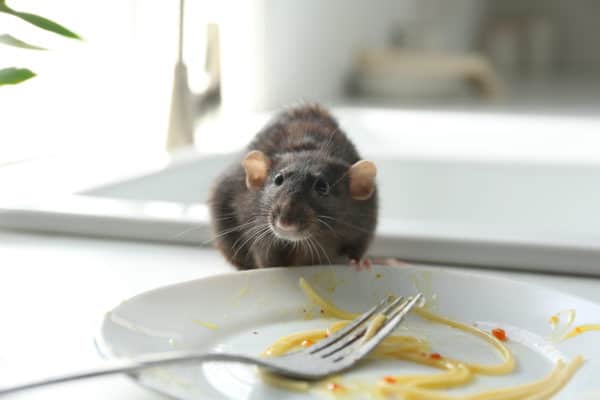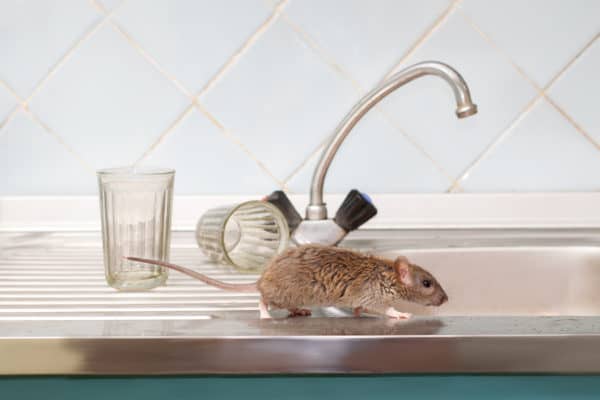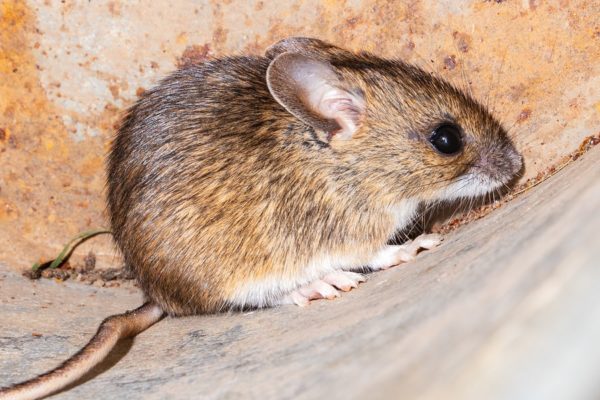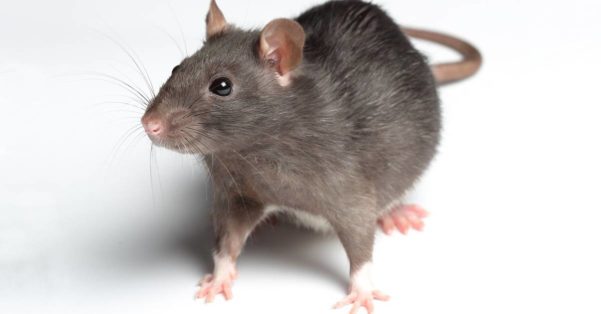READY TO GET STARTED?
REQUEST A FREE ESTIMATE
Fill out the form below or call (888) 466-7849 for a free, no-obligation estimate.

As the corona virus continues to spread, people around the world are drastically changing their daily routines. Tourism has come to a grinding halt. Restaurants are closed and people are staying home. What many don’t realize is this change in our daily lives is also affecting the ecosystem within cities. As there is less urban traffic, there is less food for pests and rodents – like rats. According to experts, if rats lose these established food sources (e.g. trash in cans in the park or dumpsters outside restaurants) then they will start fighting over any food that remains, even going so far as to kill each other in order to survive.
Because rats are having to get creative in finding new food sources, there is now a trending surge of rats invading homes and essential businesses in search of their next meal. Rats will follow the smell of food into homes, being as bold as necessary to find food in their effort to survive. Rats in homes pose serious risks – they will chew through wires and cables putting you at risk for fires and they carry diseases of their own which can easily be transmitted to you and your family. While there is no evidence that rats themselves can become infected with corona virus, there is some risk for spreading it to humans. Rats are known to crawl through sewer pipes containing human feces which has been shown to contain the virus. They then make their way into your home and contaminate any surfaces they touch with the virus-laden feces, potentially allowing humans who come in contact with these contaminated surfaces to contract the virus. The CDC reports that although this scenario is possible, the risk of transmission by feces is actually quite low.
To protect your family and/or essential business, the following rat prevention tips can help to prevent a rat infestation, limit the spread of disease, and keep your environment a safe-haven, during shelter-in-place orders and in the future:
If you notice a rodent problem in your home or essential business, contact a professional pest control company. Rats can cause serious health risks to your family or employees, as well as the risk for fire and other structural damage to your home and property. A licensed wildlife exclusion company will inspect your home to identify your animal problem, determine where they are getting in, remove them, and prevent the animals from getting into your home in the future. They can also inform you of any existing damage or contamination and provide you with a recommendation for repairs or clean-up.
5 Things That Could Be Attracting Termites to Your Home
Summer Wildlife Removal: Common Home Invaders
What is the Difference Between Traditional and Green Pest Control?

Signs of a rodent infestation are pretty easy to spot – droppings in the house, chew marks, gnawed wood, and scratching and squealing sounds at night are all pretty good indicators of a rodent problem. Before deciding on a course of treatment, however, the first step is determining which type of rodent you have. So how do you know if you have a rat or a mouse?

Mice are small rodents, usually about 2 to 4″ in length, with thin, long, slightly hairy tails. They have triangular shaped noses with long whiskers and large floppy ears. Mice can be brown, gray, or white in color. Mice droppings are small and smooth with pointed ends, usually about 1/8 to 1/4″ in length. They leave anywhere from 40 to 100 droppings per day. Mice prefer cereal grains or plants but will eat almost anything. They are nocturnal and tend to be bolder than rats. They are curious and will explore new things, making them easier to trap. They are skillful climbers and their small size allows them to access more areas of your home.

Norway rats are larger rodents, usually weighing about 11 ounces and measuring 7 to 9 inches in length. They have heavy, thick bodies that are brown in color with black shading and shaggy coats. Norway rats have blunt, rounded noses and short ears. Their tails are thick, hairless, and scaly and are dark colored on top and pale underneath. Norway rat droppings are brown and blunt on both ends and they leave anywhere from 20 to 50 droppings per day. They prefer fresh grains and meat but will eat just about anything. These rats typically live in burrows and prefer lower levels of homes and buildings. Norway rats are nocturnal and are more fearful and cautious than mice, making them more difficult to trap. They can climb but prefer to stay closer to the ground.

Roof rats are smaller than Norway rats, weighing about 7 ounces. They have light, slender bodies that are gray in color with smooth coats. They have thick, hairless, scaly tails that are dark in color. Roof rats have pointed snouts with large ears. Roof rat droppings are dark with both ends pointed. They will also eat just about anything but prefer fresh grains and meat. They are nocturnal and timid in nature. Because of this, they can be difficult to trap. They are excellent climbers and are more often found nesting in walls, attics, and trees.
Regardless of whether you have mice, Norway rats, or roof rats, all of these rodent species can cause damage to your home and property by chewing through wires, pipes, insulation, and drywall. They can also cause damage to furniture and carpets. All rodents can contaminate food and countertops. Serious diseases caused by rat droppings and mouse droppings include Hantavirus, salmonellosis, and more. They all reproduce quickly and a minor problem can become a major infestation in no time.
Keeping these pests out of your home is critical to helping protect the safety of both your family and your property. Here are some rodent control tips you can implement in and around your home: